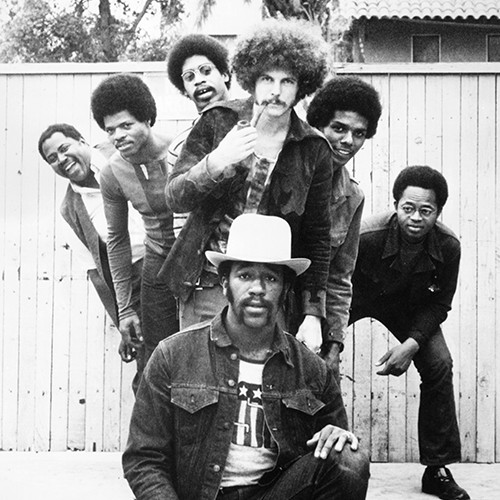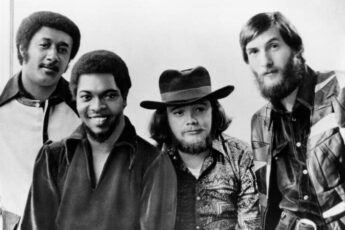What’s in a name?
I think most people probably know the supposed origins of the seemingly odd band name Led Zeppelin; legend has it that Keith Moon famously derided the prospects for a young English group playing hard rock versions of old American blues as likely to go over like a lead balloon (Page and Plant took it up a notch from there). And few of us presumably stop to consider how peculiar it actually is that what became the greatest band in music history was named after an insect (but, of course, The Beatles chose their label as an homage to early-rock idol Buddy Holly and his band The Crickets). You could, in fact, fill a very long list with what are – at least on the surface – some extremely strange band names. But for the most part they’re at least explainable. What, then, of a certain early/mid-‘70’s band out of Long Beach, California who achieved righteous success with a multi-ethnic lineup transcending racial and cultural barriers, and one founding member who described the band’s overarching goal as being “to spread a message of harmony, using instruments and voices to speak out against racism, hunger, gangs, and crimes, and promote hope and the spirit of brotherhood.” Well, what else would one name such a band but: War. That’s it. Think about that for a second. Just…War.
Originally Eric Burden & War when they recorded the hypnotic 1970 tune ‘Spill The Wine’ (Burden being the alluring former leader of British R&B stalwarts The Animals), War would go on to make a succession of bristly yet still beloved songs that were not only commercially successful but had a distinctive mood different from most popular music of the time. Music writer Colin Larkin of the Encyclopedia of Popular Music described it as a “potent fusion of funk, R&B, rock and Latin styles producing a progressive soul sound” all of which was recognizable in charting hits like ‘The Cisco Kid, ‘Low Rider,’ ’The World is a Ghetto,’ ‘Slippin’ Into Darkness,’ ‘All Day Music’ and ‘Summer.’ Yet it’s another song, the title track from their 7th studio release in 1975, for which they may be best known, a song whose jaunty, peppy feel seems to be greatly at odds with that coarse, almost daunting, multi-genre hybrid present on most of those aforementioned recordings and deservedly responsible for evoking their rugged, street-tough image. And that’s their bouncy little tune, ‘Why Can’t We Be Friends?’ It’s four kooky minutes of simple, romping fun. Pretty irresistible. And, all things considered, a surprisingly cheery choice coming from a band named War.
That name, War, I mean, what is it good for?







Leave a Comment